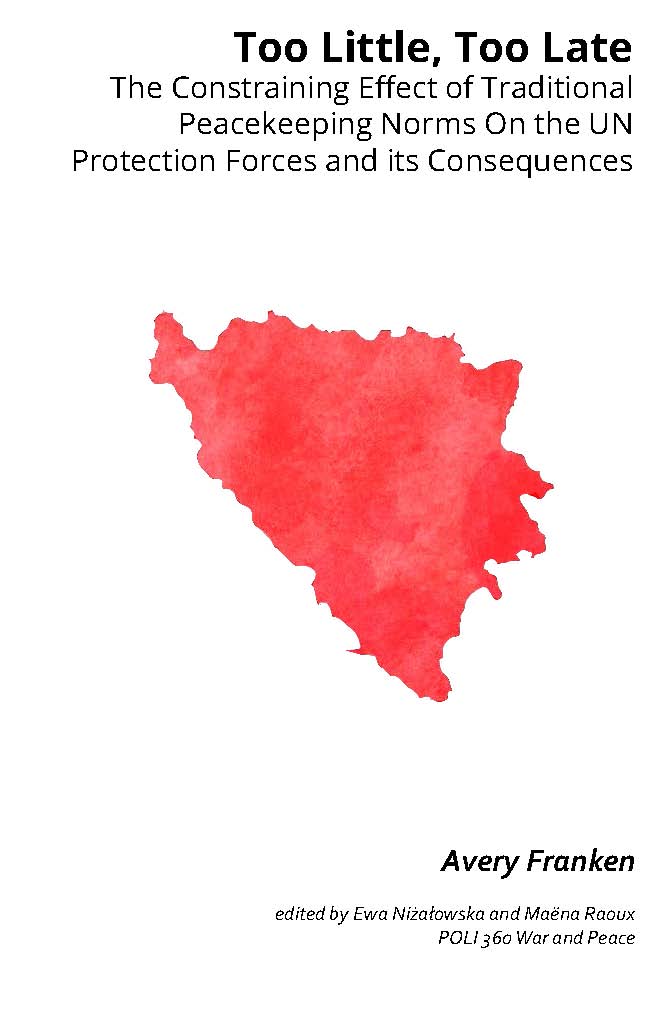Too Little, Too Late: The Constraining Effect of Traditional Peacekeeping Norms On the UN Protection Forces and its Consequences
DOI:
https://doi.org/10.26443/firr.v9i2.16Abstract
During the Bosnian War (1992-1995), despite the efforts of the United Nations Protection Force (UNPROFOR), thousands of lives were lost in heinous attacks on Bosnian Muslims, perpetrated mostly by Bosnian Serbs. Using a constructivist approach, this paper investigates why the United Nations (UN) failed in their mandate to protect the Bosnian people. To do so, it examines the deeply entrenched norms that have traditionally guided UN peacekeeping – namely, impartiality and non-use of force. By tracing the key events that defined the UN’s involvement in this conflict in relation to existing theoretical models of norm emergence and evolution, the paper finds that the UN’s strict adherence to these principles significantly contributed to their failure to achieve their objectives. This is evidenced by the limited capacity of the UN peacekeepers during the conflict, the swift improvement of conditions following the replacement of UNPROFOR with the NATO-led Implementation Force, and the developments within the UN that ensued in the following years. The paper concludes with potential implications of these findings and suggestions for further research.
Downloads

Downloads
Published
Issue
Section
License
Copyright (c) 2019 Avery Franken

This work is licensed under a Creative Commons Attribution-NonCommercial-NoDerivatives 4.0 International License.

